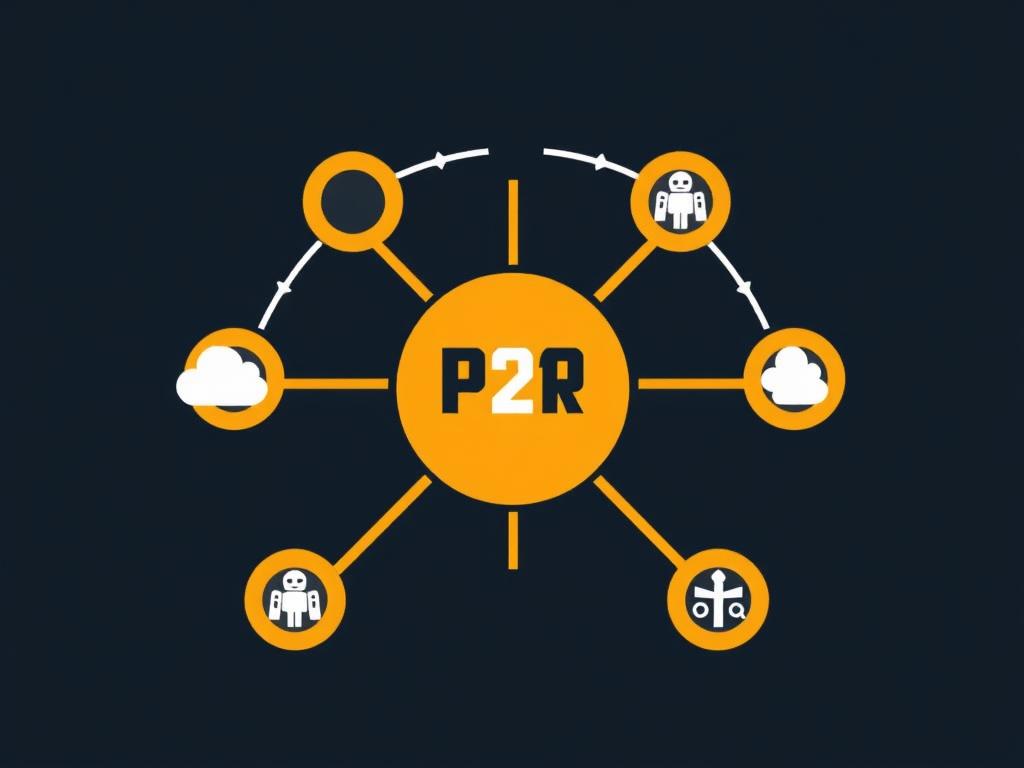Can P2P Replace Dedicated Game Servers? Exploring the Future of Online Gaming Infrastructure
In the evolving world of online gaming, one question ignites spirited debates: can Peer-to-Peer (P2P) connections replace dedicated game servers? This topic resonates deeply with game developers, players, and network engineers alike. On one hand, dedicated servers have long been considered the gold standard for performance and reliability. On the other, P2P is praised for its cost-effectiveness and scalability. As gamers demand smoother, more immersive experiences, understanding the strengths and weaknesses of each system is crucial. In this article, we’ll dive into how these two technologies work, their pros and cons, and whether P2P can truly supplant dedicated game servers in the future of online gaming.
Understanding Dedicated Game Servers
Dedicated game servers are specialized computers that host multiplayer game sessions exclusively. Unlike P2P systems where each player’s device shares the workload, dedicated servers serve as centralized hubs for game data processing. This centralization improves stability, reduces cheating possibilities, and usually results in lower latency since the server is optimized for network traffic management.
Game developers typically rent or own these servers, strategically placing them across various geographic regions to minimize latency for global players. For many popular online games, like MMORPGs and first-person shooters, dedicated servers have been the backbone of smooth multiplayer experiences. However, maintaining this infrastructure comes at a significant cost, including hardware investment, bandwidth, and ongoing management.
Advantages of Dedicated Game Servers
- Stability and Reliability: With dedicated hardware, these servers offer consistent uptime and performance.
- Cheat Prevention: Centralized control allows better monitoring and restriction of unfair gameplay.
- Reduced Latency: Properly located servers ensure quicker data exchanges, leading to smoother gameplay.
- Scalability: Developers can allocate resources according to demand.
Challenges Faced by Dedicated Servers
- High Costs: Maintaining global server infrastructure for peak hours can be expensive.
- Single Points of Failure: Though resilient, a server going down affects all connected players.
- Inflexibility in Small Communities: Less popular games or smaller playerbases might suffer from lack of nearby servers.
What Is Peer-to-Peer (P2P) Networking in Gaming?
Peer-to-Peer gaming networks work on a fundamentally different principle: instead of a single server, each player’s device participates in hosting and processing the game state. This decentralized approach removes the need for a central dedicated machine, distributing the workload across all participants.
P2P is often used in games where the cost of dedicated servers is prohibitive or for smaller multiplayer matches. Since the hosting responsibility can rotate among peers, the system can be remarkably scalable. However, this flexibility brings its own set of challenges.
Benefits of P2P Gaming Systems
- Cost Efficiency: No need for expensive server infrastructure; players’ devices share resources.
- Ease of Setup: Quick matchmaking allowing players to connect without specialized servers.
- Adaptive Scalability: The network can expand as more players join.
Drawbacks of P2P Networks
- Susceptibility to Cheating and Hacking: Since control is more distributed, it can be easier to exploit.
- Host Advantage and Latency Issues: The peer acting as host often experiences advantages like lower lag, leading to unfair play.
- Unstable Connections: Individual players’ network quality directly affects the experience.
- Privacy Concerns: Sharing IP addresses among peers can expose players to risks.
Comparing Dedicated Servers vs. P2P: A Side-by-Side Look
| Feature | Dedicated Game Server | Peer-to-Peer (P2P) |
|---|---|---|
| Cost | High – requires infrastructure investments | Low – utilizes player devices |
| Performance | Consistent, low-latency connections | Variable, dependent on host’s connection |
| Security | High – centralized control limits cheating | Low – vulnerable to exploits |
| Scalability | Good, requires resource allocation | Excellent, grows with playerbase |
| Setup Complexity | Complex, needs server management | Simple, uses existing peer networks |
| Fairness | High – uniform conditions for players | Potential host advantages |
Current Trends and Innovations in Multiplayer Networking
While both dedicated servers and P2P systems have defined the multiplayer landscape, hybrid models are emerging to combine the best of both worlds. For example, many games implement a “listen server” approach, where one player acts as a host but can swap to dedicated servers when available. Others use cloud-hosted servers with P2P elements to balance cost and performance.
Moreover, advancements in cloud gaming and edge computing could bring new possibilities. Edge servers located closer to players can reduce latency without the heavy costs of traditional global data centers. Additionally, improved encryption and matchmaking algorithms are making P2P networks safer and more reliable.
Potential Future Developments
- Decentralized Matchmaking Services: Leveraging blockchain and distributed ledgers to improve P2P trustworthiness.
- AI-Enhanced Network Management: Automatically adjusting network roles and data routing among peers.
- Serverless Gaming Platforms: Using cloud resources dynamically to act as ephemeral servers.
When Does P2P Make Sense and When to Stick With Dedicated Servers?
For developers and gamers alike, choosing between P2P and dedicated servers often comes down to the nature of the game and the community. Fast-paced, competitive games with large global audiences, such as esports titles, tend to benefit from the stability of dedicated servers. On the other hand, casual games, indie projects, or titles with smaller playerbases may find P2P the better option due to its lower cost and simplicity.
Ideal Scenarios for P2P

- Small-scale multiplayer sessions
- Games with less emphasis on competitive fairness
- Projects with limited budgets
- Regions where server infrastructure is sparse
Ideal Scenarios for Dedicated Servers
- Large competitive multiplayer games
- Games requiring strict anti-cheat measures
- Titles demanding consistent low latency worldwide
- Esports and professional tournaments
Conclusion
So, can P2P replace dedicated game servers? The honest answer is: it depends. While P2P offers appealing benefits such as cost savings and flexible scalability, significant issues like security vulnerabilities and variable performance persist. Dedicated servers continue to offer unmatched stability, security, and fairness that many modern online games demand. However, as technology progresses with advancements in cloud computing, edge servers, and network management, the gap between these two paradigms may narrow. For now, the future of online gaming likely involves a blend of both systems, tailored to the specific needs of games and their communities. Whether you’re a developer or a player, understanding these dynamics is essential as the landscape of multiplayer gaming continues to evolve.






